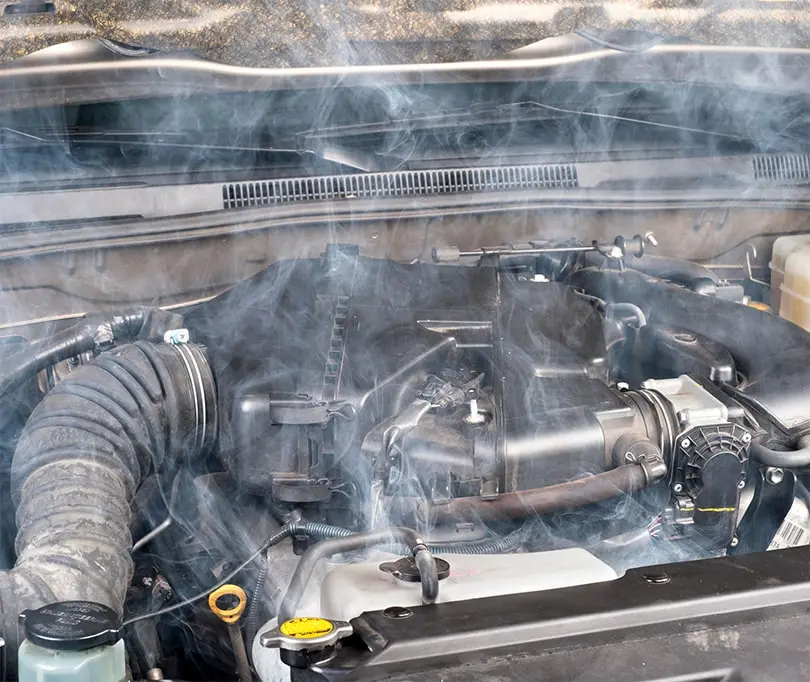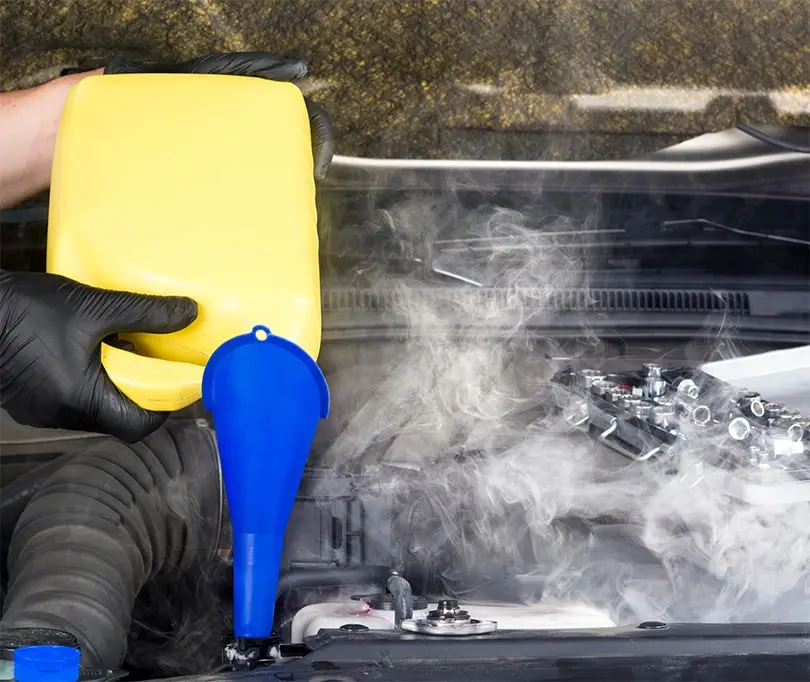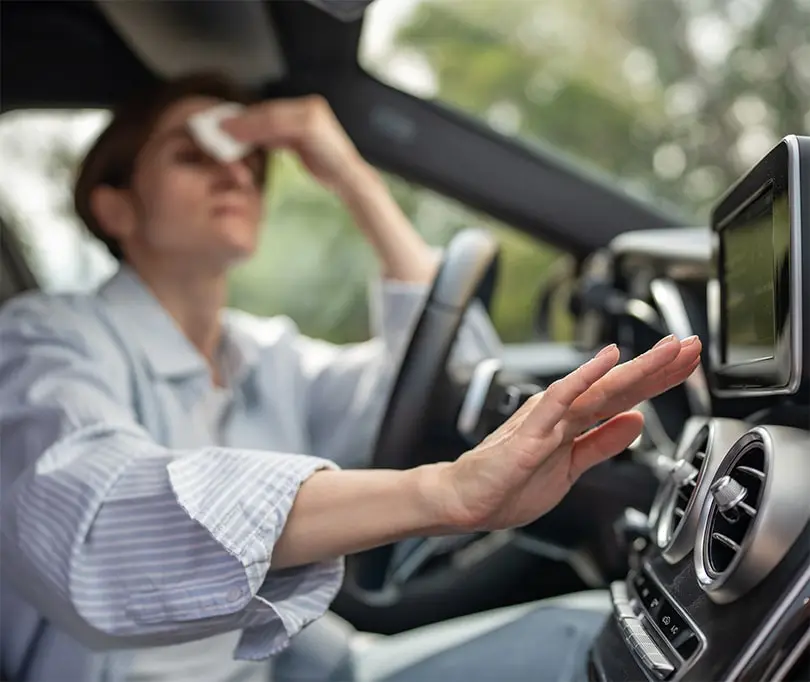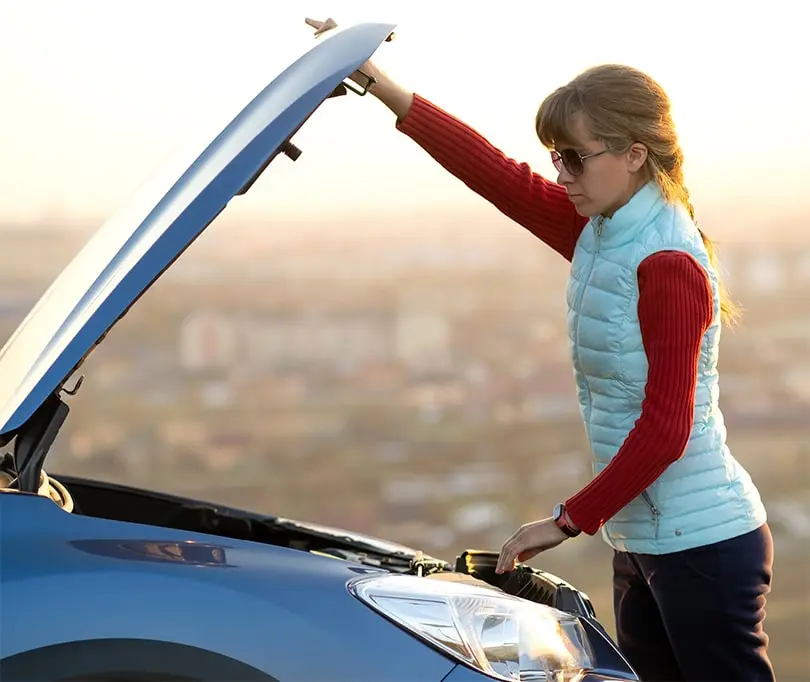

If you’ve ever had your engine overheat…you know how unsettling it is.
This summer has been hot, and sometimes it’s difficult to tell if your car is overheating, or if it’s heated from the hot sun. We’re here to help with that distinction.
Stewart’s Donnybrook Automotive, a trusted and experienced East Texas auto mechanic, has seen a lot over the years when it comes to cars with overheated engines.
There are many potential causes for your car to overheat. What’s most important, however, is that you know what to do if it happens.
Here’s a list of potential causes of your car overheating, and what to do in such an emergency.
First, let’s look at why engines overheat.

One common reason is that the cooling system isn’t working properly, and heat doesn’t leave the engine compartment, causing your engine to overheat. Where the issue originates is another matter. The culprit could be a broken water pump, leak in your cooling system, or a clogged coolant hose, to name a few.
When an engine overheats, it can be a bit dramatic. A sure sign is if you suddenly see steam pouring out of your hood.
Especially if it’s really hot outside, keep an eye on the gauges on your dashboard. If you see the engine temperature gauge suddenly jump to the red section or “H”, you know you’re in the process of overheating.
If you smell something out of the ordinary around your engine, it could be a sign you have either a coolant leak (which is a sort-of sweet smell) or it could be an oil leak (which will smell like burning oil).

Oil lubricates your car’s engine and if you allow your oil levels to get too low, heat can accumulate and overcome the coolant’s ability to work properly and cause your car to overheat.
If your water pump breaks, your radiator no longer gets the coolant it needs, which will cause it to overheat.
The radiator fan moves cool air and cools the radiator. If it breaks, it will cause your radiator to overheat.
If you haven’t been up on your regular maintenance, there’s a chance your coolant levels could become dangerously low. You should have your antifreeze serviced regularly checking for leaks and fluid levels.
Low coolant could also be the result of a coolant leak, which could have several culprits and needs a mechanic to diagnose.
A stuck or broken engine thermostat, clogged cooling system, or restricted airflow from a blockage in your radiator.
One of the best ways to prevent your car from overheating is making sure you schedule regular maintenance checkups with your local auto mechanic.
Once you notice the signs of an overheating engine, you need to take immediate action to save your vehicle from permanent damage.

Yes, you read that correctly. While it might seem counterproductive to turn off the air conditioner and turn up the heat, that’s exactly what you need to do if you notice one of the signs that your engine is overheating.
By turning on the heat, you’re taking pressure off the cooling system and helping to pull heat away from the engine. Chances are you’re going to get uncomfortable pretty quickly, so it’s a good idea to get to Step 2 as soon as possible.

First, take a deep breath and don’t panic. Panicking when you see the signs of an overheating engine could lead to a car accident, which is just going to make the situation worse. As best you can, find a safe spot to pull over. While you might be tempted to pull over immediately when you see an alarming sign like steam pouring out of your hood, it’s most important that you find a safe place to do so. Far too many avoidable accidents, injuries, and casualties occur because people don’t take the time to find a safe place to pull their car off the road.
Once you’re safely pulled over, let your engine cool down for a minimum of 15 minutes, and watch the temperature gauge on your dashboard. As the engine cools down, you should hopefully see a change as it goes back down to normal. In the meantime, consider the possible reasons your car could have overheated and contact your local mechanic or roadside assistance. There’s a good chance you might need to have your car towed.

If you’re able, and in a safe place to do so, you can check your coolant. Especially if you live in a hot place like East Texas, it’s a good idea to have coolant on-hand in your vehicle. If you have coolant, and you see your coolant level is low, you can add more and see if that helps with the issues. It’s important to know, however, that if the issue is one of the many other potential problems such as a broken water pump or radiator, adding coolant won’t do much.
If you add coolant and the car cools down and your gauges are normal, you can go ahead and try to start your engine. Pay attention to your gauges and if you see the same signs, pull over again and call a tow truck. If you can drive your car, drive it straight to your local auto mechanic and get it checked out.
Having your car overheat isn’t a small matter and can ruin your engine.
Make sure you keep your car, truck, or SUV on a regular maintenance schedule with your local auto mechanic. A trusted mechanic who knows your vehicle well will be more aware of the signs and can help prevent overheating from happening.